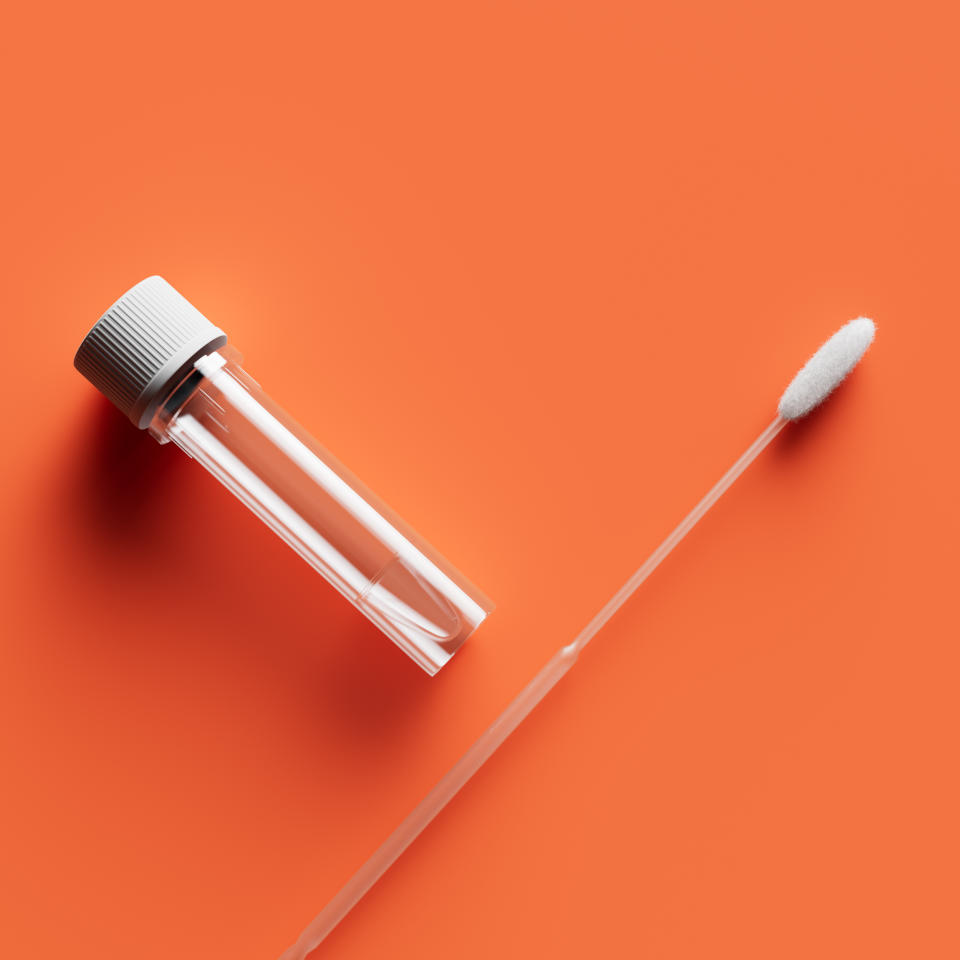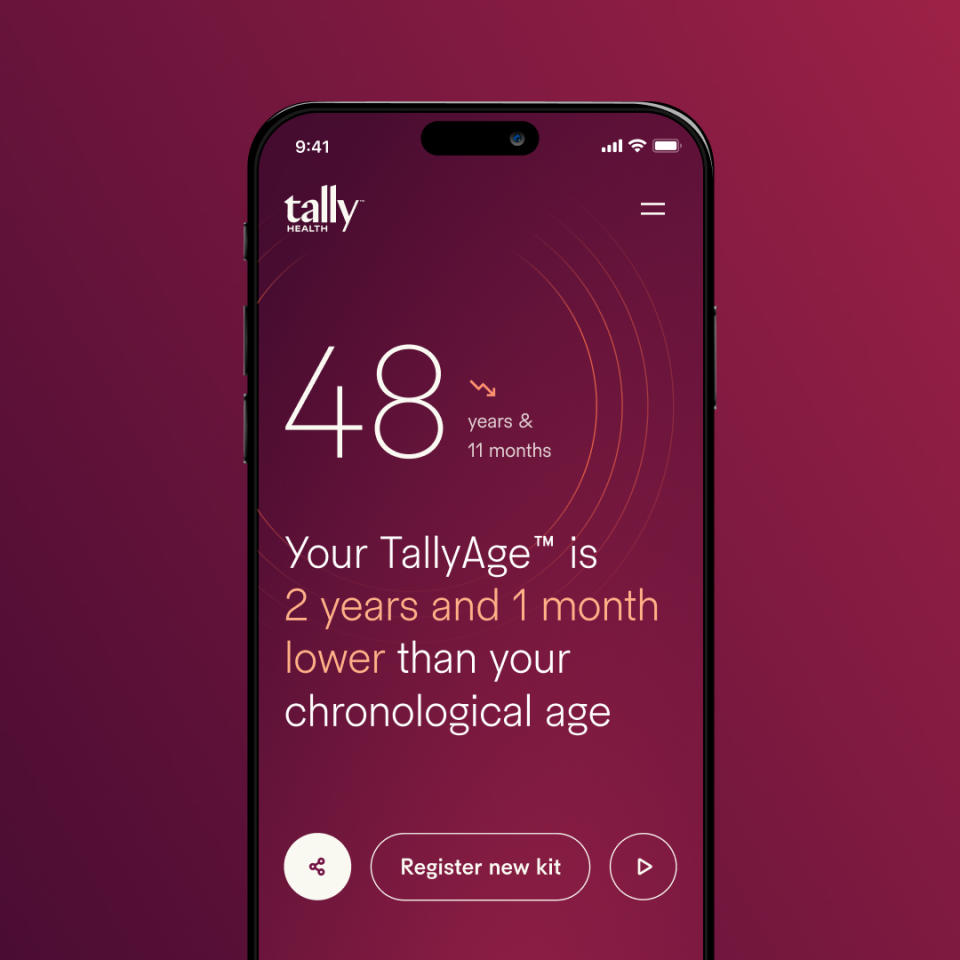Can Aging Be Reversible?

Would you want to know your body’s real age?
That was the question David Andrew Sinclair — known for his research on aging and epigenetics — posed on X, formerly known as Twitter. A prominent biologist and academic, and professor of genetics at Harvard Medical School, his work centers on why we age and how to slow its effects.
More from WWD
LVMH Launches 22 Montaigne Entertainment to Explore Its 70 Maisons' Potential Across Film, TV
Inside Beyoncé's Cécred Launch Party in L.A., With Tina Knowles and Blue Ivy Carter
“We had an overwhelming response,” says Melanie Goldey, chief executive officer of Tally Health, the biotechnology company Sinclair cofounded with entrepreneur Whitney Casey. Together they’ve built a model to give people insights into their biological health and aging meant to allow wellbeing optimization.
“We didn’t even have enough kits, because we didn’t expect that,” Goldey continues. “So we sent out a bunch of tests and we got 8,000 back.”
It was the early days of Tally Health when Sinclair’s message went into cyberspace. That was the birth of the company’s database, which has an age range of 18 to 100 years old, more than 30 percent non-white and a nearly equal split of males and females, according to Goldey. The company is still only about a year old, having been unveiled on Feb. 23, 2023.
And it’s caught the eye of Hollywood.
“I will tell you, I had the pleasure of listening to David speak at a small casual, sort of lecture-ish thingy,” actor and director Jason Bateman said on his Smartless podcast, cohosted with fellow actors Sean Hayes and Will Arnett.
“At someone’s house?” asked Arnett.
“At someone’s house,” Bateman affirmed.
“Hollywood does it right, don’t they?” Arnett laughed. “They just bring people in. Like, ‘You know what? Bring somebody smart over here and let them talk to us.’”
Bateman introduced Sinclair as the guest for the episode. “He said some things that really straighten me out as far as my knowledge of general health and mortality,” Bateman said on the podcast.
Discussing his life work and where the science stands today, Sinclair described the innovation as being “at the level of the Wright Brothers” in 1902 — as in American aviation pioneers Orville and Wilbur Wright.
“We’re figuring out how to glide, but we do know it’s possible to fly,” explained Sinclair, who’s Australian American. “My colleagues and I, we’re about 100 leaders in the world doing this, we call it aging research or longevity research. It’s now a fact that modern science has caught up with aging. For a while we ignored it. We thought it was natural, acceptable. That’s B.S. It’s definitely not acceptable. It’s the greatest cause of pain and suffering on the planet. And if you think heart disease, cancer and Alzheimer’s are bad, what do you think causes those, right? Young people don’t get those diseases. It’s 1,000 times aging and one time or 20 times are these other drivers of these disease. So, my point is, if we can understand what causes aging, slow it and even reverse it — and we’ll get to that — then these diseases either don’t happen, or you can take them away.”

His lab at Harvard has spent 20 years detecting the genes that control the aging process, he went on: “And we’ve been very successful. We have a handful of genes that seem to regulate all life forms on earth, from trees to worm to even humans. And we could even read your genes and tell you what the chances are of you living a long time. But now, actually, there’s new stuff, which is blowing my mind….We can see this in mice very easily. We can reverse the age of the eye in a mouse and make them see again, these old mice. We can make them run 150 percent, 200 percent on a treadmill after just a few weeks of treating. These are the Wright Brothers days, right? Imagine in 20, 30 years, we could have intercontinental air travel, eventually go to the moon.”
Today, compared to a decade ago, “we know so much more [on aging], especially the changes during the aging process,” Max Guo, the chief of the Cell Biology Branch in the Division of Aging Biology at the National Institute on Aging — part of the National Institutes of Health — tells WWD Weekend in an interview.
“We have identified hallmarks of aging,” adds Guo. “We know many factors involved that affects human aging.”
According to scientific papers at NIH, there are 12 hallmarks of aging, including genomic instability (“an increased tendency of the genome to acquire mutations”) and telomere attrition (“the gradual loss of the protective caps of our chromosomes”).
In testing, DNA methylation is most promising, with “epigenetic clocks predicting chronological age using methylation levels at age-associated CpG sites [which are regions of DNA],” notes NIH research. (Our chronological age is based on our birthdate, while biological age is what our cells, tissues and organ systems appear to be.)
“Measuring your biological age needs to be more carefully studied,” Guo says. “Most of the studies are still in animal models.”
He’s optimistic about the future, however. “In the next few years I think some interesting or exciting discoveries might be found.”
With Tally Health, Sinclair is bringing an element of his work to the mass market. A testing process that was previously only available to the elite is now more accessible. A single TallyAge test costs $249, with membership starting at $129 a month (coming with scheduled testing twice a year).
“The idea was that consumers needed to be aware of what’s going on and needed to be able to have a solution or a company that can help them incorporate some of these scientific advancements in their day-to-day lives, particularly when it comes to people who aren’t scientists, or people who don’t have access to this type of information, and certainly people who aren’t billionaires, who are part of this community that has had access to this type of stuff,” Goldey says.
The way it works is Tally Health takes your DNA sample and determines your epigenetic age through a proprietary analysis of DNA methylation sites affected by aging. That is then combined with information about your lifestyle and daily habits. Are you aging faster or slower?

“Less than 10 percent of your longevity is based on your genetics, which means 90 percent is based on your lifestyle choices and your environment,” Goldey says. “There are some other studies that show that 10 percent ranging upwards to 20 or 30 percent. But the fact is the takeaway remains the same, is that the vast majority is controllable.”
The company offers supplements (which are sold at a lower price for members): “Vitality” (made to target the 12 hallmarks of aging, at $89 monthly) and “Amplify” (which aims to boost mitochondrial health and improve glucose metabolism “while stimulating the cellular recycling process autophagy,” at $79 a month). There’s also a personalized digital action plan for specific recommendations, which are categorized under diet, fitness, sleep, mental health and habits.
“We tell you within each of those categories, these are some specific recommendations that have the highest impact for you based on your DNA,” she adds.
What are the learnings a year into launch?
“We’ve been able to see that our system is really working,” Goldey reveals. “Two fun facts: over 60 percent of our members have reduced their epigenetic age by [nearly] two and a half years. And that has been in less than a year of being in business. Seventy-five percent of our members have improved their lifestyle score, a score out of 100 that’s an easy, intuitive way of understanding kind of where you are at any given point.”
“It’s a fascinating topic, right?” Guo says of testing aging. “Many people are interested in the topic, but the research is very new. So I think people need to be cautious. It will be better tested in humans. But it’s a promising field.”
Best of WWD


